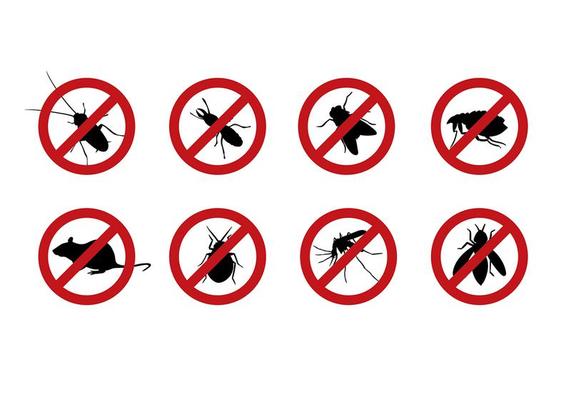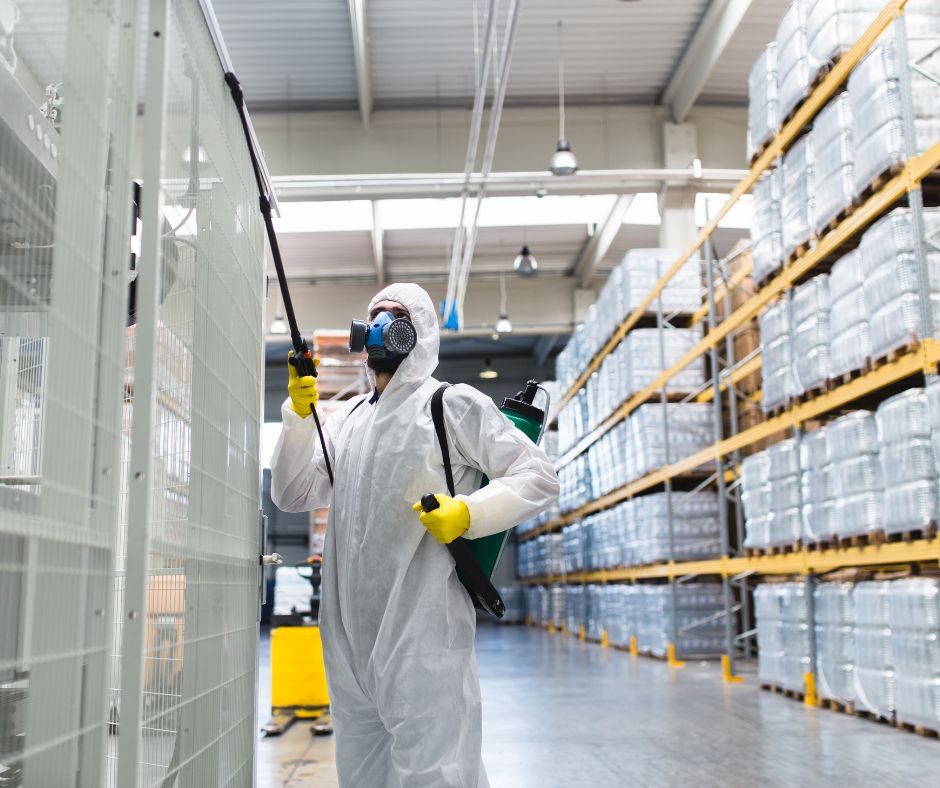Expert Rodent Control Port Charlotte to Prevent Damage to Your House
Reveal the Value of Pest Control in Maintaining a Healthy And Balanced Atmosphere and Therapy Techniques

The Role of Pests in Environments
Parasites, typically seen exclusively as hassles, play a multifaceted duty in ecological communities that is essential for preserving ecological balance. They contribute significantly to various ecological processes, consisting of pollination, nutrient cycling, and insect control. For instance, several insect species, such as butterflies and , are essential pollinators for a vast array of plants, which subsequently sustains biodiversity and food production.
In addition, pests work as prey for various killers, developing a vital web link in food internet. This interdependence ensures the survival of various species and aids manage populaces within ecosystems (Termite treatment Port Charlotte). Decomposer pests, such as particular beetles and fungis, are important in damaging down organic matter, thus improving soil and promoting nutrition recycling.
Conversely, while parasites can be useful, their overpopulation or invasion into non-native environments may interrupt these ecological functions. This complexity underscores the significance of recognizing pest dynamics, as efficient bug management techniques have to take into consideration both their ecological roles and prospective effect on human tasks. Balancing pest visibility while minimizing damage is necessary for protecting the stability of ecological communities and making certain agricultural productivity.
Health Risks Related To Pests
The existence of bugs in various settings expands beyond their eco-friendly functions, as they additionally present significant wellness threats to people and pets. Numerous pests, consisting of rodents, bugs, and bloodsuckers, are providers of illness that can have serious wellness implications. For instance, rodents are understood to send hantavirus and leptospirosis, both of which can result in severe respiratory and kidney concerns, specifically.
Bugs such as insects and ticks are well known for spreading vector-borne illness like malaria, dengue high temperature, and Lyme illness. These illnesses can lead to high morbidity and death prices, particularly in at risk populations. Additionally, pests like vermins and roaches can exacerbate allergies and asthma, adding to respiratory issues in individuals, particularly those with pre-existing problems.
Moreover, the presence of bugs can result in emotional stress and pain, impacting total health. Contamination of food and surface areas by insect droppings and continues to be can result in foodborne health problems, highlighting the relevance of preserving sanitary problems. Recognizing the health risks associated with parasites is crucial in identifying the necessity of reliable bug management approaches to secure human and animal health.

Advantages of Effective Pest Control
Efficient insect control is crucial for maintaining a healthy and balanced and secure setting, as it regularly reduces the various risks associated with insect problems. One of the primary advantages of reliable insect monitoring is the reduction of wellness risks.
In addition, efficient pest control safeguards residential or commercial property and frameworks from damage. Many parasites, like termites and carpenter ants, can trigger considerable architectural damages that may need expensive repairs. By proactively managing these infestations, organizations and home owners can secure their financial investments.
An additional significant advantage is the renovation of total lifestyle. A pest-free environment adds to mental well-being and decreases anxiety connected with invasions. Effective pest control cultivates a much safer atmosphere for kids and pet dogs, making certain that homes stay shelters complimentary from dangerous chemicals and disease-causing Extra resources organisms.
Typical Parasite Control Strategies

In the realm of parasite administration, various strategies are used to deal with invasions efficiently. These techniques can be generally categorized into 3 primary approaches: cultural, mechanical, and chemical controls.
Social control includes changing techniques to minimize bug recreation, facility, and survival. This may include plant rotation, proper sanitation, and habitat adjustment, which jointly create a setting much less favorable to pest proliferation.
Mechanical control utilizes physical approaches to eliminate insects (Termite treatment Port Charlotte). Strategies such as catches, barriers, and vacuum cleaners are frequently utilized to directly get rid of pests from an area. This method is especially reliable for managing rodents and insects without using unsafe chemicals
Chemical control includes the application of chemicals to manage insects. These compounds can be classified into insecticides, fungicides, and herbicides, each targeting certain sorts of parasites. It is vital to make use of these chemicals deliberately, sticking to safety guidelines and laws to minimize potential injury to non-target species and the atmosphere.
Each pest control technique has its benefits and limitations, and frequently, an incorporated strategy combining numerous techniques generates the best results in maintaining a pest-free atmosphere.
Lasting Bug Management Practices
Lasting parasite monitoring techniques incorporate a variety of techniques developed to reduce ecological impact while effectively controlling pest populaces. These techniques prioritize the use of eco-friendly methods over chemical pesticides, consequently lowering the risk of injury to non-target types, consisting of beneficial bugs, wildlife, and people.
Integrated Pest Monitoring (IPM) is a cornerstone of lasting practices, combining organic, cultural, mechanical, and chemical tactics to handle bugs. For circumstances, biological control includes introducing natural predators or bloodsuckers to subdue bug populaces. Social techniques, such as plant rotation and polyculture, interfere with pest life process and improve ecosystem strength.
Mechanical approaches, such as catches or obstacles, can effectively prevent pest access without chemical treatment. In addition, keeping healthy communities with correct soil management, plant health, and biodiversity can normally mitigate pest problems.
Education and learning and recognition are vital elements, encouraging neighborhoods and people to acknowledge parasite dangers early and carry out precautionary actions. Termite treatment Port Charlotte. By cultivating a holistic method that balances pest control with environmental integrity, sustainable bug management practices not only secure structures and plants however additionally contribute to a healthier atmosphere for future generations
Final Thought

Recognizing the health risks connected with bugs is vital in acknowledging the necessity of reliable parasite monitoring strategies to safeguard animal and human wellness.
Efficient bug control is crucial for keeping a safe and healthy setting, as it continually minimizes the many risks connected with parasite invasions.Integrated Parasite Monitoring (IPM) is a foundation of sustainable techniques, combining biological, cultural, mechanical, and have a peek at this website chemical strategies to manage insects. By recognizing the role of pests, acknowledging connected health dangers, and using diverse therapy methods, a sustainable method to pest read review monitoring can be achieved. Integrated Bug Monitoring (IPM) highlights an all natural technique that reduces injury to valuable microorganisms while efficiently controlling pest populations.